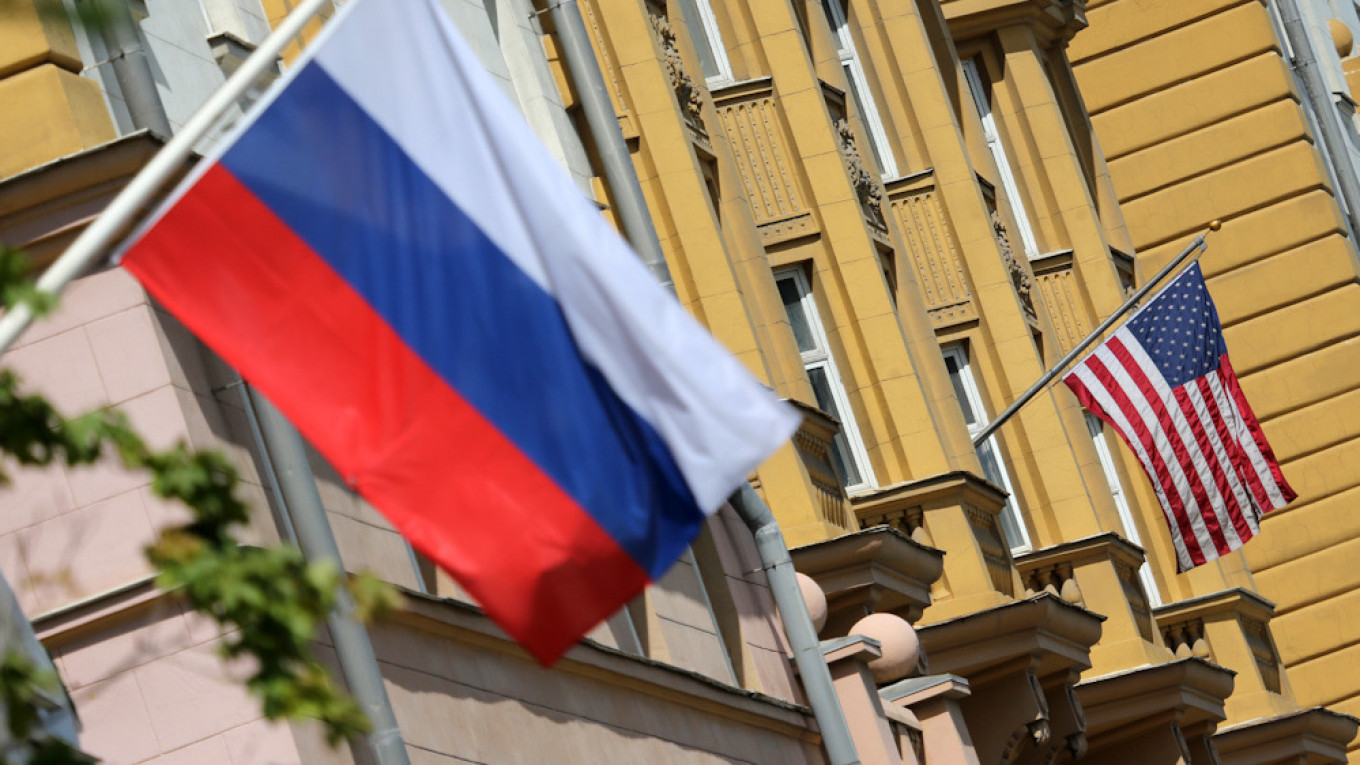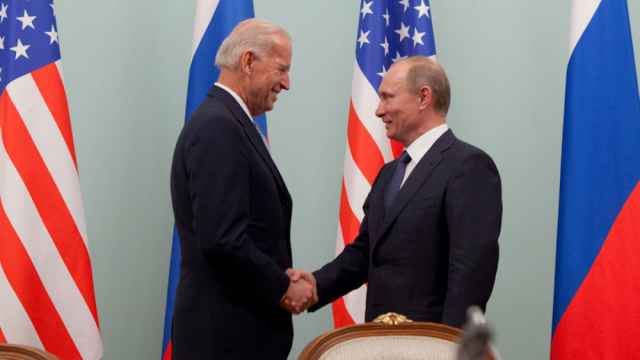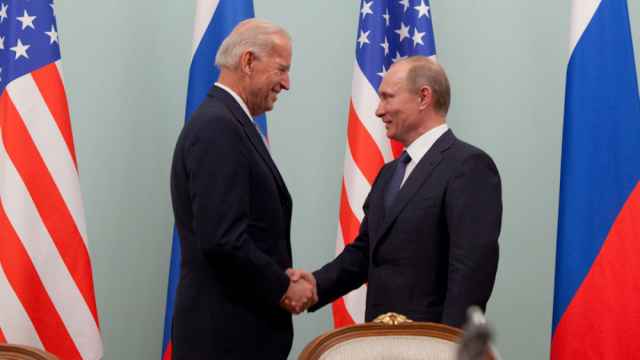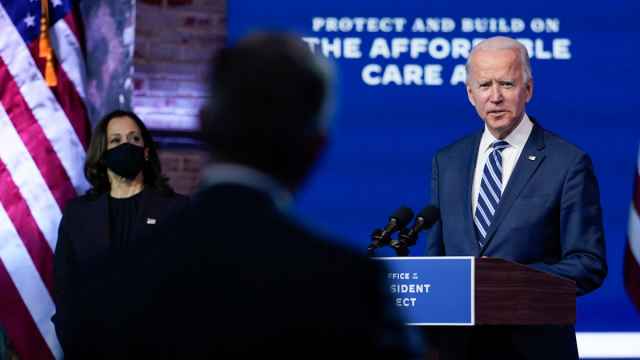A couple of years ago in Moscow, a Russian policymaker made an interesting observation to me. Russia and the United States, he said, were not anywhere near Cold War levels of confrontation. But the rhetoric — especially coming out of the West — was much more emotional, so much so that it would never have been ignored during the Cold War.
I’m in DC right now, and according to the culture of the day calling someone emotional is tantamount to gaslighting and therefore impolite.
But given that the president I voted for didn’t bother with basic diplomatic politesse when he said he thought Putin was a killer, I’ll take my chances. The Director of National Intelligence (DNI) report detailing how Russia and Iran conducted covert influence operations in the United States is not a story about Russia and its capabilities. It’s a story about America and its vulnerabilities.
According to U.S. intelligence officials, “Russian state media, trolls, and online proxies, including those directed by Russian intelligence, published disparaging content about President Biden, his family, and the Democratic Party.”
The assessment also clearly states that neither Russia nor any other foreign actor “attempted to interfere” in the mechanics of the 2020 U.S. election; what is more crucial is that the assessment did not concern itself with analyzing the actual impact.
There is a lot more in it that talks about Russian intent, some of it true and some of it rather exaggerated, but given the difficulties of ascribing intent I will just stick to the main takeaway.
Essentially, the U.S. National Intelligence Council was tasked with finding threats to the U.S. election. The threat it identified was that a bunch of Russians were saying mean things about Biden on Twitter, with Putin’s — gasp! — tacit approval.
When Russia did actually interfere in the U.S. elections in 2016, I saw it as two stories.
One was about the Kremlin’s strategy, desired outcome and possible impact, while the other was about how the United States reacted to the interference.
I have always believed that the bigger, less examined story — and also the one which actually had more impact on America’s political climate — is the second one.
Because now, with a far less robust influence campaign largely limited to social media and with no discernible impact, it warrants an examination of why, exactly, this is such a big deal for the most powerful country in the world.
It is a very common human reaction to deflect when things get out of control, to pin the blame for a formidable problem you don’t know how to solve on some powerful other.
Vladimir Putin, horrified and dismayed by the popular protests against his return to the Kremlin in 2011, blamed them squarely on Hillary Clinton just to avoid confronting the idea that there was deep, genuine dissatisfaction with his rule.
Insecurity and fear of popular unrest have become key features of the Kremlin’s domestic and foreign policy since then, including blaming the United States and the collective “West” and seeking out American efforts to malign Russia through covert influence ops lurking around every corner.
In Washington today, there is still a security fence around the perimeter of the Capitol; armed National Guard troops still patrol a good chunk of the ground.
Two months after the Capitol riots, in other words, the U.S. government still fears domestic unrest. This is the legacy of the trauma of the Trump election, when many in the political establishment here were so mortified that instead of seeing Trump as a symptom of deeper societal divisions they chose to see him as a Kremlin agent.
Those societal divisions — the key cause of the unrest that the U.S. government still fears – are themselves a product of blame.
Amid rising economic inequality, decaying infrastructure, broken healthcare, where the middle class finds itself increasingly hard pressed to afford a lifestyle the previous generation had taken for granted, someone has got to take the blame.
One half of the political spectrum blames immigrants and a government brainwashed, as they see it, by wokeness.
The other half takes turns blaming everything on racism and canceling Dr. Seuss — a convenient tactic of deflection, given that if we convince ourselves that it’s enough to keep condemning the racism lurking within us all then we absolve ourselves of the need to actually do anything about it.
America is so easily triggered by what is in effect Russian trolling because Americans are increasingly uncomfortable with the threats within.
We ridiculed Putin when he did the same. To be fair, so do many, many Russians — who are in some ways savvier at detecting the lies their rulers tell themselves — and we still rightly see the Kremlin’s fixation with U.S. interference as paranoia.
But consider that the Kremlin fears malign influence from a far more powerful, wealthier opponent that could potentially encircle Russia if it so chose. What is America’s excuse?
Blaming Russia — indeed turning to it as the source of one’s threats — is comforting on another level. It’s familiar and soothing to re-enact the dichotomies of Cold War childhoods, and for Biden, perhaps his youth.
And here, perhaps, is a silver lining. When Biden responds to Russian social media trolling by calling Putin names and threatening retaliation, and Putin trolls back with “It takes one to know one.” Maybe this isn’t a Cold War after all.
Childish, perhaps, but the two most powerful men in the world are venting their emotions with words rather than weapons.
A Message from The Moscow Times:
Dear readers,
We are facing unprecedented challenges. Russia's Prosecutor General's Office has designated The Moscow Times as an "undesirable" organization, criminalizing our work and putting our staff at risk of prosecution. This follows our earlier unjust labeling as a "foreign agent."
These actions are direct attempts to silence independent journalism in Russia. The authorities claim our work "discredits the decisions of the Russian leadership." We see things differently: we strive to provide accurate, unbiased reporting on Russia.
We, the journalists of The Moscow Times, refuse to be silenced. But to continue our work, we need your help.
Your support, no matter how small, makes a world of difference. If you can, please support us monthly starting from just $2. It's quick to set up, and every contribution makes a significant impact.
By supporting The Moscow Times, you're defending open, independent journalism in the face of repression. Thank you for standing with us.
Remind me later.








